A uniform disc of mass 1kg and radius 20cm is rolling purely on a flat horizontal surface. Its centre C is moving with acceleration a=20ms−2 and velocity v=4m/s at a certain instant. At this instant. points A and B are located on the disc as shown in the diagram, with AC=BC=10cm.
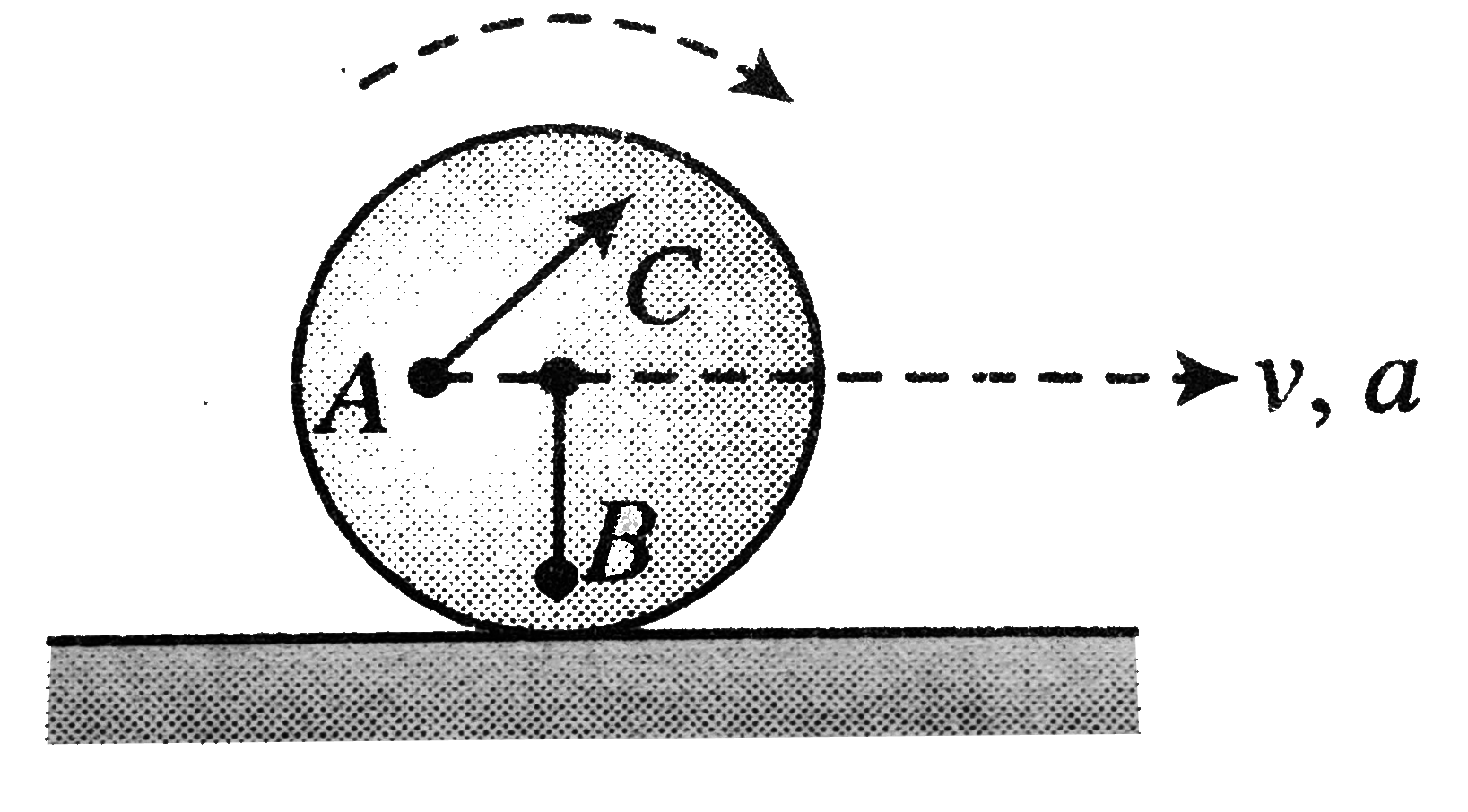
What is the kinetic energy of the disc?
12J
8J
20J
10J
The correct Answer is:A
KE=12mv2=12Iω2=34mv2=12J
→aA/C=→aA−→aC
⇒→aA=→aA/C+→aC=ω2rˆi+αrˆj+aˆi=60ˆi+10ˆj
→aA=√3600+10=10√37m/s2
→aB=ω2rˆj+αr(−ˆi)+aˆi=10ˆi+40ˆj
aB=10√17m/s2
Topper's Solved these Questions
- RIGID BODY DYNAMICS 2Book:CENGAGE PHYSICSChapter:RIGID BODY DYNAMICS 2Exercise:Integer
Explore 7 Videos
- RIGID BODY DYNAMICS 2Book:CENGAGE PHYSICSChapter:RIGID BODY DYNAMICS 2Exercise:Fill In The Blanks
Explore 7 Videos
- RIGID BODY DYNAMICS 2Book:CENGAGE PHYSICSChapter:RIGID BODY DYNAMICS 2Exercise:Multiple Correct
Explore 26 Videos
- RIGID BODY DYNAMICS 1Book:CENGAGE PHYSICSChapter:RIGID BODY DYNAMICS 1Exercise:Integer
Explore 11 Videos
- SOUND WAVES AND DOPPLER EFFECTBook:CENGAGE PHYSICSChapter:SOUND WAVES AND DOPPLER EFFECTExercise:Integer
Explore 16 Videos
Similar Questions
Knowledge Check
A uniform disc of mass 1kg and radius 20cm is rolling purely on a flat horizontal surface. Its centre C is moving with acceleration a=20ms−2 and velocity v=4m/s at a certain instant. At this instant. points A and B are located on the disc as shown in the diagram, with AC=BC=10cm.
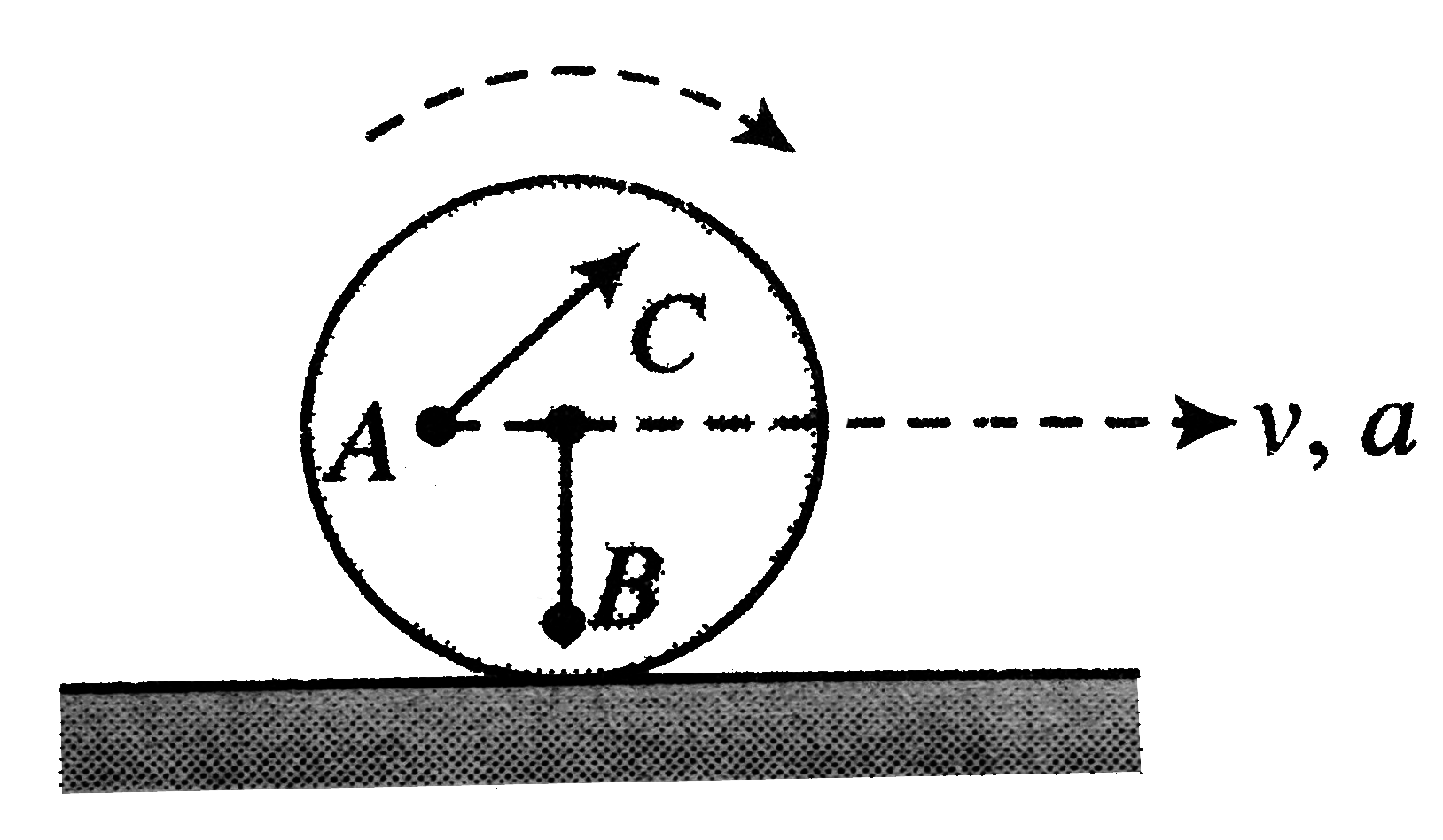
What is the acceleration magnitude of point B?A10√17ms−2B10√37ms−2C10√35ms−2D60√17ms−2A uniform disc of mass 1kg and radius 20cm is rolling purely on a flat horizontal surface. Its centre C is moving with acceleration a=20ms−2 and velocity v=4m/s at a certain instant. At this instant. points A and B are located on the disc as shown in the diagram, with AC=BC=10cm.
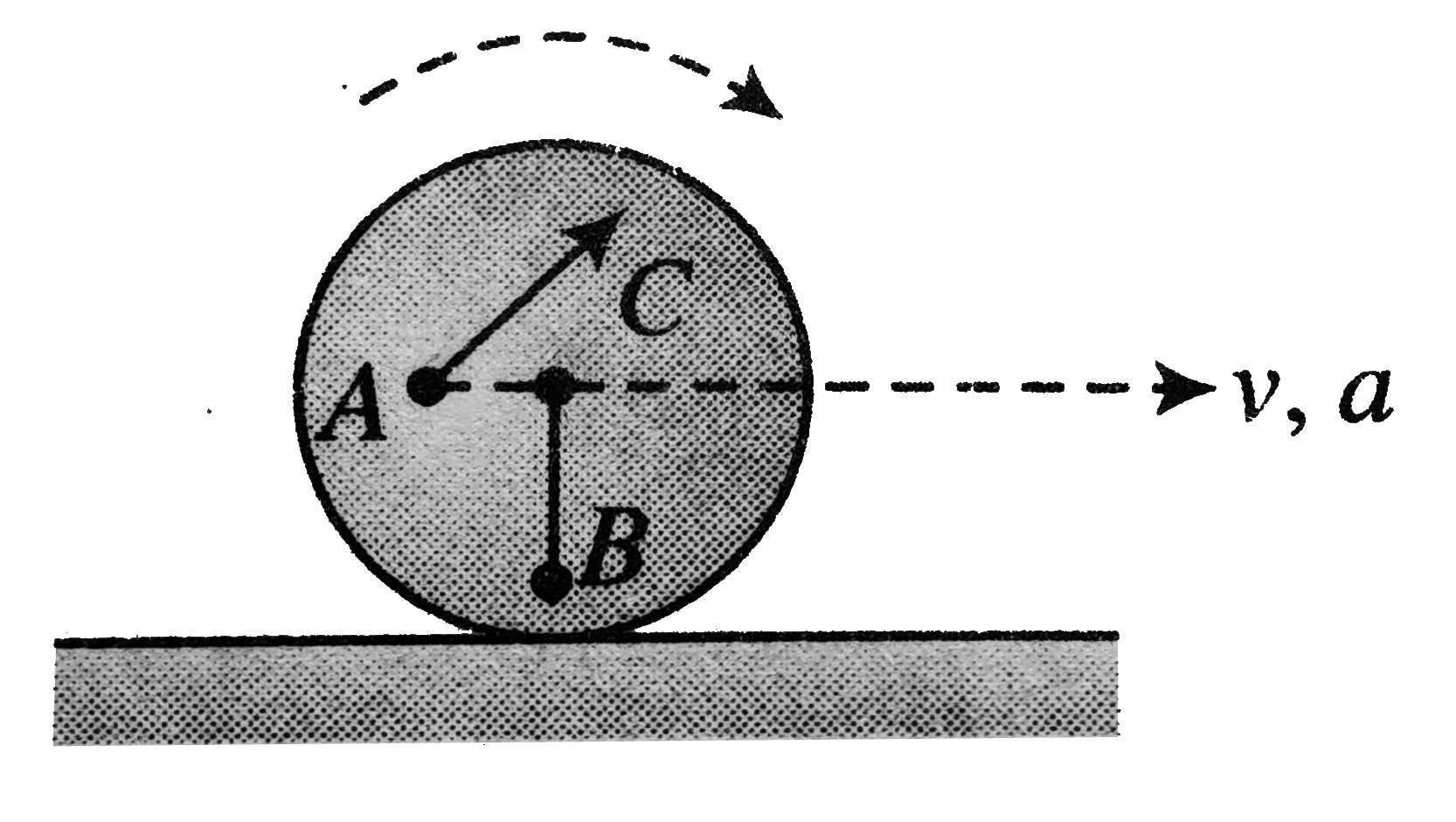
What is the acceleration magnitude of point A?A10√17ms−2B10√37ms−2C10√35ms−2D60√17ms−2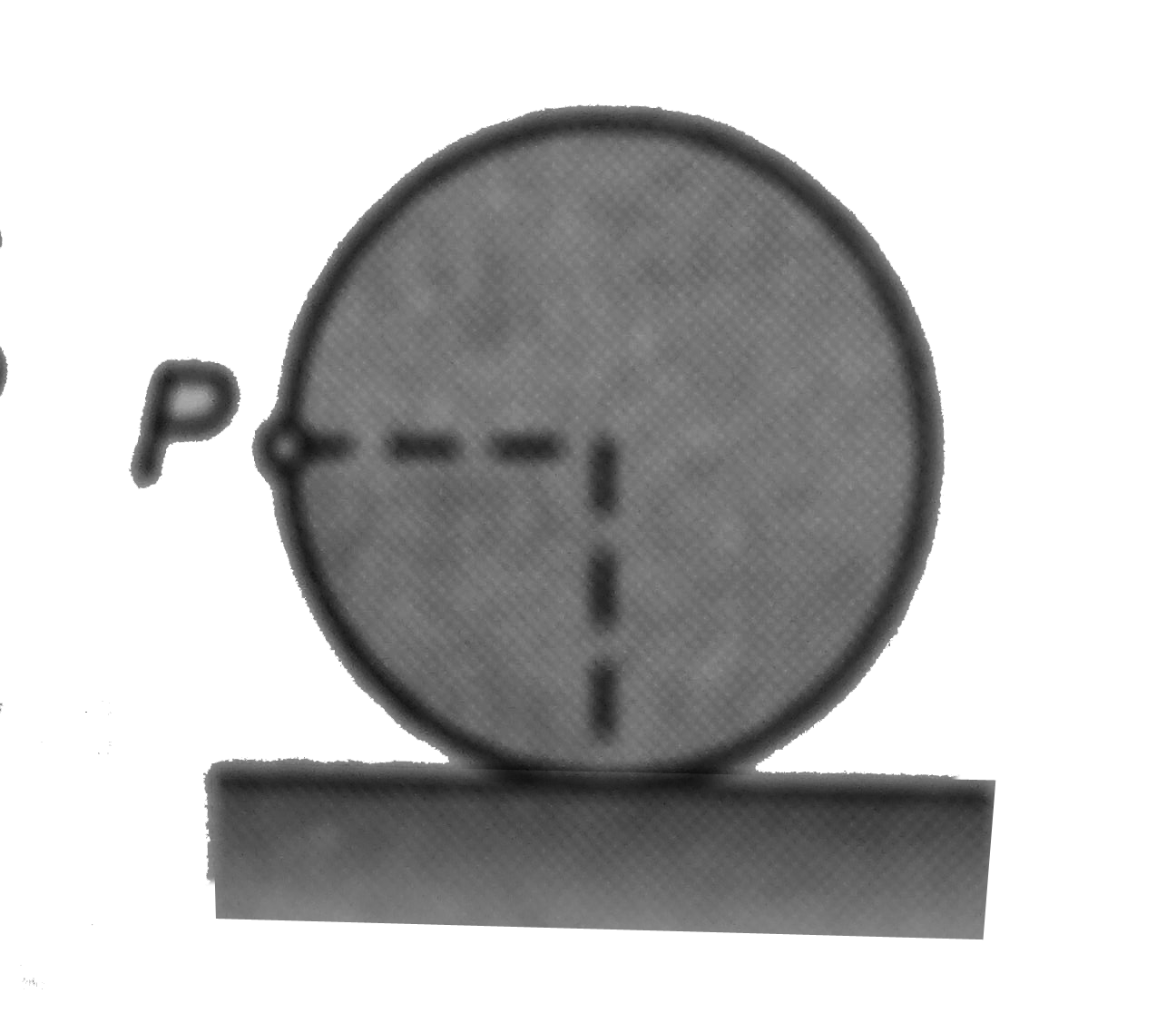
A disc of radius R is rolling purely on a flat horizontal surface, with a constant angular velocity the angle between the velocity ad acceleration vectors of point P isAzeroB45∘Ctan−1(2)Dtan−1(1/2)
A disc of radius R is rolling purely on a flat horizontal surface, with a constant angular velocity. The angle between the velocity and acceleration vectors of point P is
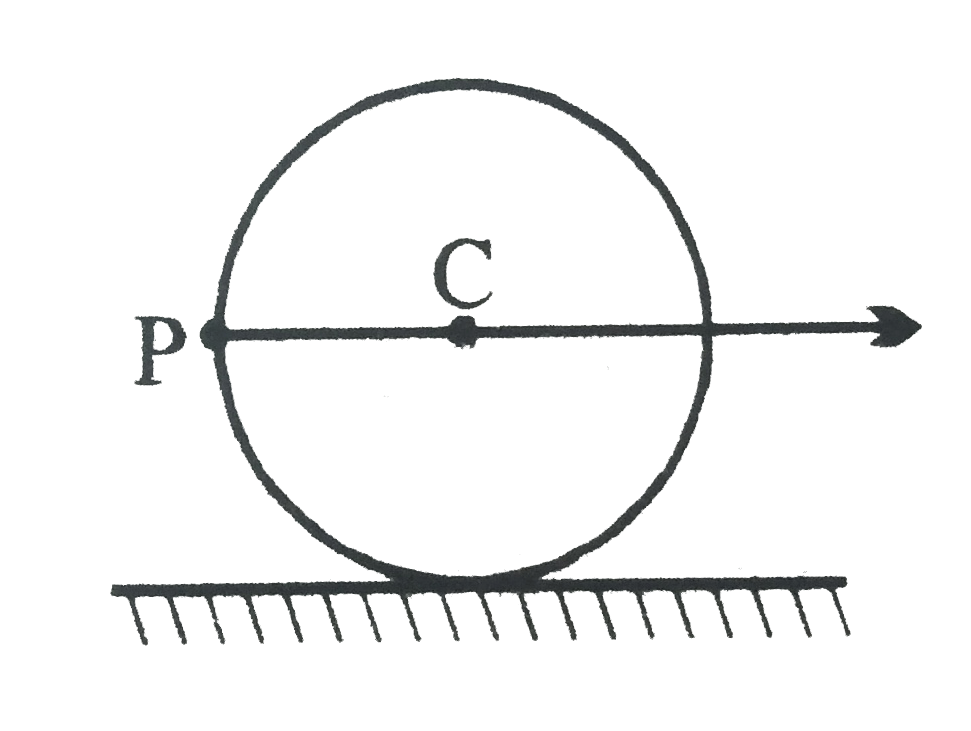 .
.
View SolutionA disc of mass 4.8 kg and radius 1 m is rolling on a horizontal surface without sliding with angular velocity of 600 rotations/min. What is the total kinetic energy of the disc ?
View SolutionA disc of radius 20CM is rolling with slipping on a flat horizontal surface. At a certain instant the velocity of its centre is 4m/s and its angular velocity is 10rad/s. The lowest contact point is O.
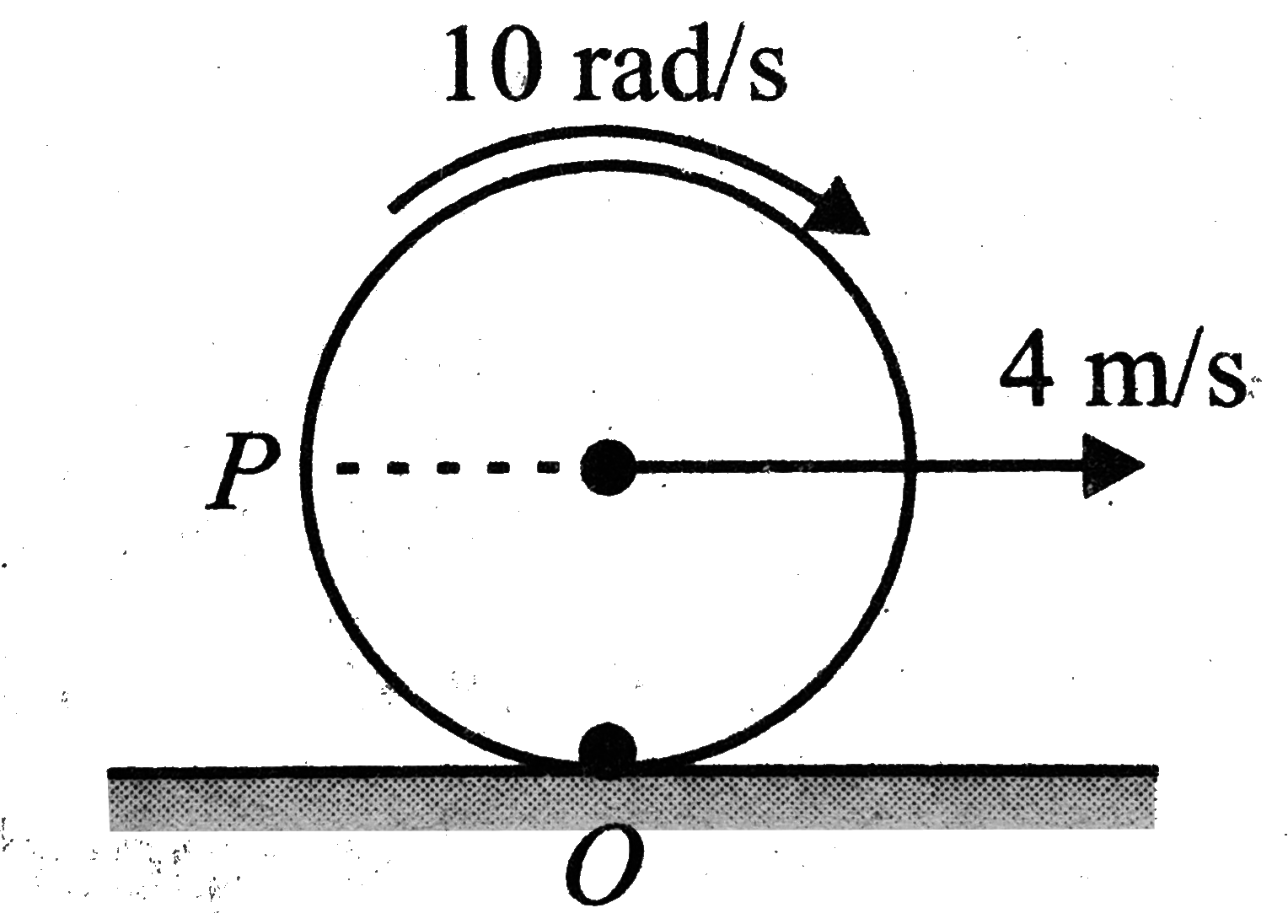
Velocity of point O is
View SolutionA disc of radius 20CM is rolling with slipping on a flat horizontal surface. At a certain instant the velocity of its centre is 4m/s and its angular velocity is 10rad/s. The lowest contact point is O.
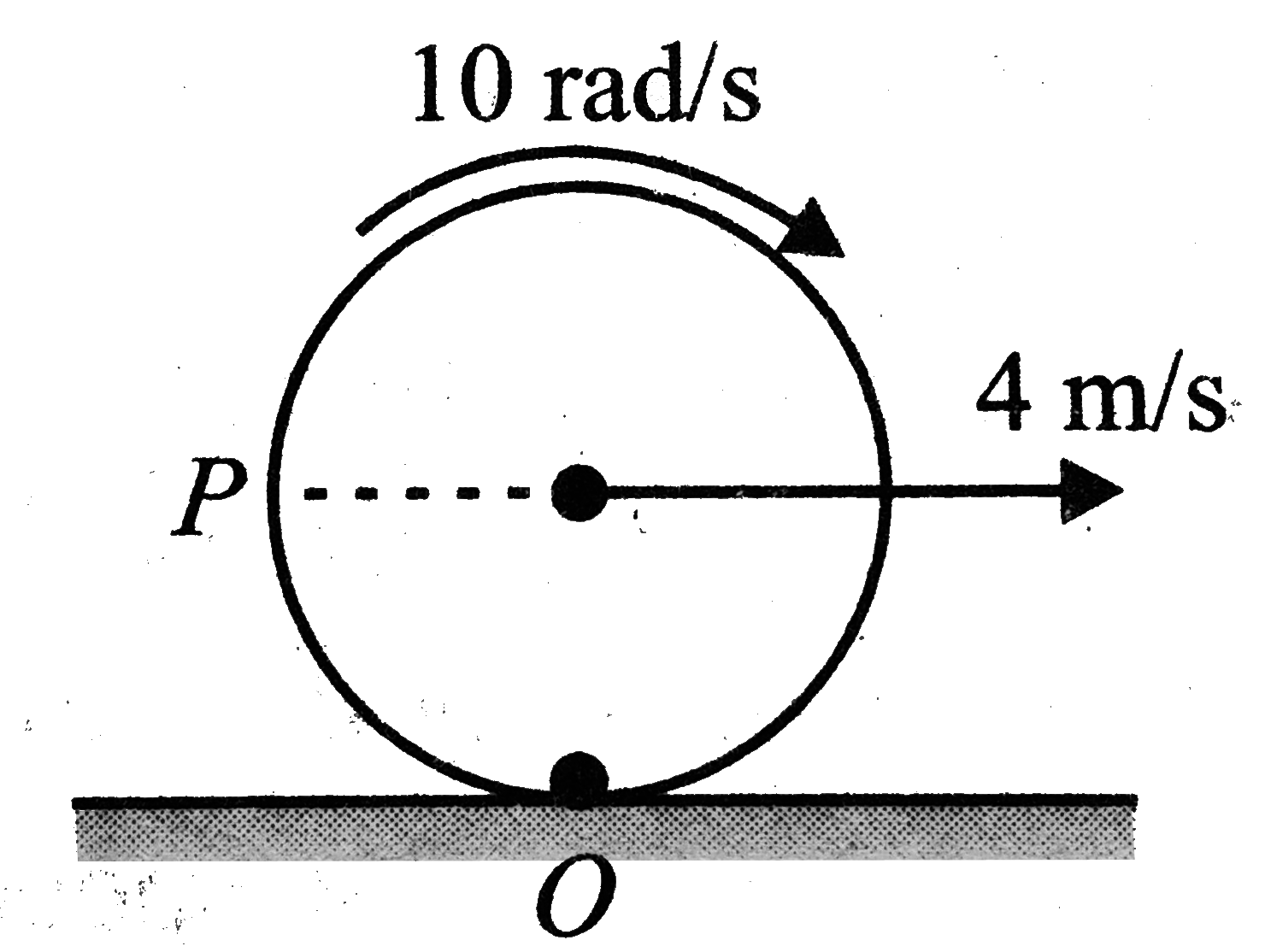
Velocity of point P is
View SolutionA disc of mass 4 kg and of radius 1 m rolls on a horizontal surface without slipping such that the velocity of its centre of mass is 10 cm sec−1, Its rotatonal kinetic energy is
View Solution

